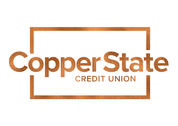Does Klarna or Afterpay Affect Your Credit Score?
Buy now, pay later (BNPL) services like Klarna and Afterpay have proved incredibly popular, allowing consumers to delay and split payments on purchases with lower rates and more flexibility than other payment methods. These are particularly attractive options for the younger generations. But is everything rosy with these fast-growing apps? What about the effect on your credit score? 🤔
In this blog, we take a look at how BNPL services report their lending to credit bureaus and the good or bad effect this could have on your credit score. Read on to learn why the tap now, pay later mantra may be costing you more than you think. 💲💲💲 
So, What’s the Story With BNPL Apps?
It’s hard to argue with the appeal of BNPL apps like Afterpay and Klarna. For those of us living paycheck to paycheck, it seems like a no-brainer, allowing us to get what we want now with no money down (or just a small portion of the full price), and delaying full payment of the outstanding balance to multiple interest-free payments later on. Both Klarna and Afterpay also offer monthly payment options on which they charge interest.
Many people see it as a low-risk, low-hassle way to spread out the cost of spending while still being able to get the purchased item right away. This is especially convenient for online purchases. It's ready for you right at checkout! 🛍️
But, what is the effect of all this short-term borrowing on young people who are in many cases only starting to build a credit record? How are these short-term loans reported to credit bureaus and what is the effect now, and into the future, of this new type of borrowing?
What Kind of Credit Checks Do Klarna/Afterpay Run?
Do Klarna/Afterpay Run?
Both Klarna and Afterpay say they run only soft credit checks on customers signing up for their services. These “soft pulls” are not formally recorded by the credit bureaus and should not directly affect your credit score. The checks are run to make sure customers can borrow money responsibly, the services say.
BNPL services differentiate themselves from other credit services by not requiring a formal credit inquiry, making them a tempting option for those with “thin” credit files or young people with only a short credit history.
What Do Klarna/Afterpay Report to Credit Bureaus?
Report to Credit Bureaus?
While traditional lenders will report the performance of loans including both on-time and missed payments to credit bureaus, BNPL services like Klarna, Afterpay, and others vary widely on how they report the performance of their short-term loans.
Both Klarna and Afterpay pass on selected loan performance information to credit bureaus, while Affirm is said to report no information at all.
Credit bureaus, for their part, are anxious to harvest a wealth of information about how borrowers handle multiple short-term loans and have encouraged BPNL lenders to share more information with them in the future.
How Can Using BNPL Affect Your Credit Score?
Does Afterpay affect your credit score? The inconsistencies in the way BNPL lenders report loan performance to credit bureaus make it difficult to figure out exactly how using these services is likely to affect your credit score.
No Fault, No Harm?
Providers like Klarna and Afterpay claim that using their services will have no impact on your credit score at all because they do not perform a hard credit pull. This is partially true.
Your credit score should not be directly affected if you always make payments on time. However, if you do miss several payments, you could be reported as delinquent to one or more credit bureaus. This can have a serious impact on your creditworthiness, both by lowering your score and by remaining on your credit report for up to seven years. This shows as a red flag to other lenders and financial institutions. 🚩
Missed payments are the biggest component (35%) of the FICO® scoring system used most commonly by credit bureaus. The second biggest factor is the amount of debt you are utilizing, so it’s important to pay off outstanding amounts as soon as possible.
Indirect Impacts
Even if you do make payments on time, some information about your BNPL borrowing will likely appear on your credit report, either by being reported by the lenders themselves or by being picked up independently by the bureaus’ research.
The impact of this activity on your credit score is particularly hard to gauge, mainly because credit unions are unsure how to handle the high-frequency, short-term borrowing that characterizes BNPL borrowing.
Ordinarily, lots of short-term loans would be a bad thing, especially for younger borrowers, as it would increase your amount borrowed while shortening the overall length of your credit history (15%) every time you paid off a loan. It might also prevent you from making use of other forms of borrowing like loans or credit cards, reducing your overall credit mix (10%).
Tip: If you find yourself splurging a little too much, it could be empowering to start a budget. We recommend using a template to make it quick and painless.
Reputation Risk
Credit bureaus are still figuring out how to account for large amounts of short-term borrowing under their existing models. These might have to be adjusted to avoid punishing younger borrowers. In the meantime, under a worst-case scenario, it’s possible your BNPL borrowing could lower your credit score even if you always pay on time.
It’s important to bear in mind that potential lenders and others can see that you are using BNPL borrowing from your credit report, and that may directly or indirectly affect your ability to borrow going forward.
Can BNPL Borrowing Boost Your Credit?.png?width=150&height=150&name=credit%20score%20meter%20(1).png)
That said, it’s possible also that BNPL could help boost credit scores by providing an easy way for new borrowers or those with thin records to improve their creditworthiness.
Some studies do show that careful use of BNPL services with on-time payments can help boost the credit scores of people with less than two other sources of borrowing information. It can also potentially help young people or those with less than two years of credit history.
Alternatives to Klarna/AfterPay
While BNPL services are convenient, it’s easy to see how a simple mistake or missed payment can introduce a lot of uncertainty over how your credit will be affected. Let’s take a look at how these types of loans stack up against some alternatives. Don't worry - choosing an alternative payment method doesn't mean you have to stop online shopping. 😉
.png?width=470&height=350&name=hide%20packages%20from%20husband%20(1).png)
1. Credit Cards
While credit cards take a little more trouble to apply for, and do require a hard credit check, once issued they offer a steady source of credit that you can use as needed and repay as you are able. Used wisely, they offer real spending power that BNPL borrowing cannot match. 💳
However, the downside of credit cards rears its ugly head when you don’t pay the balance off in full at the end of each billing cycle. This is when you’re charged interest for the balance you carry over to the next month. Credit card interest rates are among the highest of any loan option out there, so use them wisely.
It’s important to choose the right card for your needs. We offer a range of cards for every financial profile, including our Visa® Max Cash Secured Card and Visa® Secured Card, both designed to help you get on track to financial success with convenience, flexibility, and true credit-building power.
2. Personal Lines of Credit
A personal line of credit provides much of the convenience of credit cards with lower rates and more generous repayment terms. You’ll get on-tap credit as you need it, and you’re free to repay as little or as much as you can each month. You’ll add a valuable new line to your credit mix and have cash on hand for building your business, home upgrades or everyday expenses.
3. Checking Accounts with Cash Back
For responsible spending, it’s hard to beat a checking account, especially one like our CashBack Checking Account which rewards you with up to 1% back every month on everyday purchases¹.💸
Managing your spending from a checking account using a debit card and online banking takes some time and organization, and you’ll need to have the cash you plan to spend on hand, but you will also always know that everything you buy is already paid for.

Pros and Cons: Comparing Payment Methods
Various payment methods have different advantages and disadvantages. The following table summarizes some of the most important differences between the payment methods we have discussed.

A major advantage of using an integrated set of financial services like checking accounts and credit cards from a single institution like Copper State Credit Union, rather than multiple third-party payment systems, is that all your information is accessible in one place on your mobile banking app.📱

Smarter Financial Choices
Choosing to use financial tools that work together to benefit your financial health while building your credit just makes sense. At Copper State Credit Union, we aim to be your home for better financial decision-making.
Click below to learn more about our approach to better financial health.
This article is intended to be a general resource only and is not intended to be nor does it constitute legal advice. Any recommendations are based on opinion only. Rates, terms and conditions are subject to change and may vary based on creditworthiness, qualifications, and collateral conditions. All loans subject to approval.
1 Terms and conditions apply, click here for details.




-1.png?width=650&height=200&name=free%20sav%20cta%20(1)-1.png)